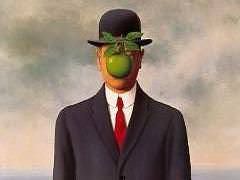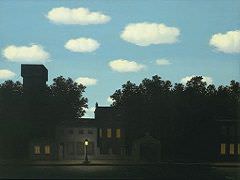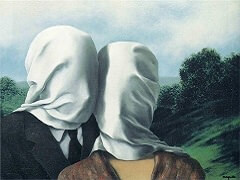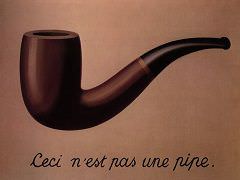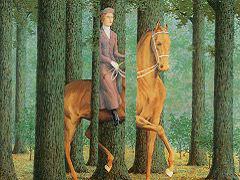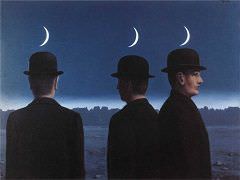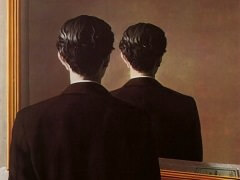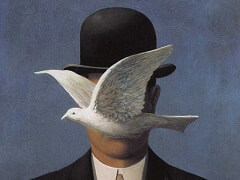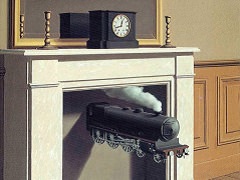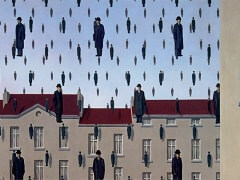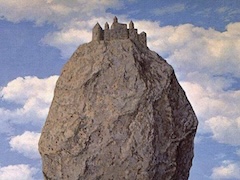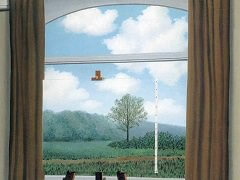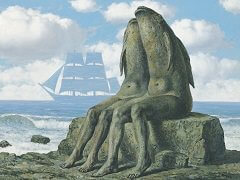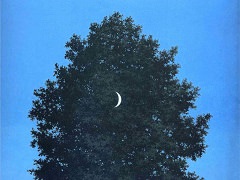The False Mirror, 1928 by Rene Magritte
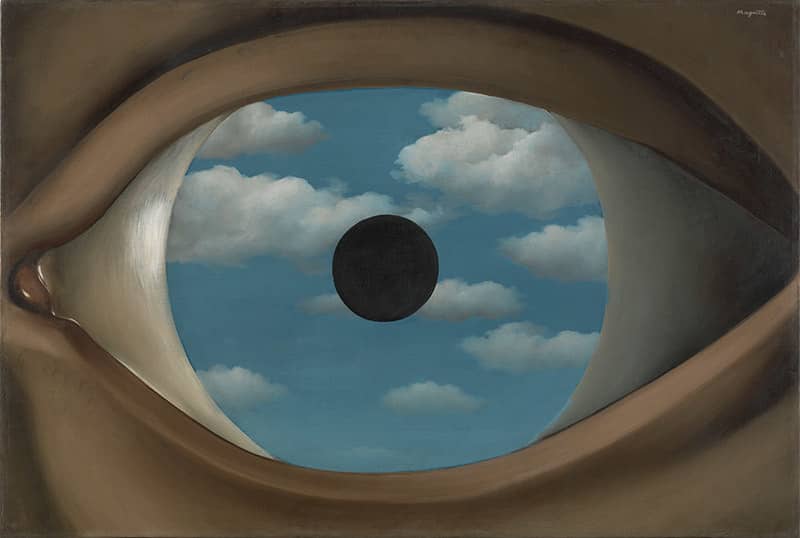
The image jolts the viewer by removing the eye from its usual context, presenting it without the face to which it belongs. It further disrupts expectation by placing a circular sky inside the otherwise ordinary oculus. Sometimes called magical realism, such juxtaposition of normally unrelated objects within a seemingly incongruous context is characteristic of much of Magritte's oeuvre. For Magritte and Surrealists working in a similar mode, these surprising, even bizarre combinations were considered the products of their unconscious minds. By visualizing them, the artists believed, they might also touch the unconscious minds of their viewers.
Many of Magritte's Surrealist colleagues, including Man Ray, Salvador Dali, and Max Ernst, made use of eyes as a motif in their art. In their works, as in Magritte's eyes undermine our basic assumptions they are recontextualized, multiplied, and assaulted; on occasion, they cry glass tears. The Surrealists meant these kinds of images to make viewers uneasy, to unsettle complacent attitudes about art and life. By replacing the eyes iris with a blue, cloud-filled sky in False Mirror, Magritte challenges us to question what we see and what we think we know. Is the sky a reflection of what the eye is seeing? Is the eye in fact an opening into another reality? Are we looking at an inner vision, or something else entirely? One thing is certain: Magritte's The False Mirror is an invitation to look at the world differently.

